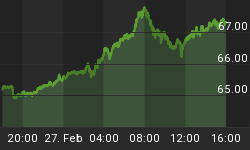Goldman Sachs and the New York Stock Exchange (NYSE), two of the largest financial institutions in the US that process trillions of dollars worth of transactions and trades on a daily basis, have confirmed their plans to operate cryptocurrency trading desks in the future. But, other major banks intend to observe the market before committing to it.
Compliance and money laundering
The demand for the cryptocurrency market has exponentially increased over the past few years, especially from institutional investors and retail traders. Billionaire investors including Tim Draper, Mike Novogratz and Peter Thiel have expressed their optimism towards the market by establishing funds that are exclusive to the cryptocurrency market.
Yet, the only major bank in the west to officially confirm its plans to develop, deploy, and operate a cryptocurrency trading desk is Goldman Sachs. Others like Citibank, JPMorgan, and Bank of America are open to being involved in the cryptocurrency sector but are currently taking a wait-and-see approach, Paul Vigna of the WSJ reported after reaching out to many of the largest banks in the US.
Similar to Goldman Sachs, Morgan Stanley has already established a platform and bitcoin-based products its clients can utilize to invest in the cryptocurrency space. But, Morgan Stanley told the WSJ that it will not operate a cryptocurrency trading desk and will only focus on serving institutional clients.
Major financial institutions are not targeting institutional clients with the intent of generating large profits from their cryptocurrency ventures, products, and trading desks. Big banks are doing so because of their concerns in regard to compliance and strict money laundering regulations. Related: Are Markets Showing Signs of A Topping Pattern?
Over the past decade, many of the world’s largest banks have been fined billions of dollars for money laundering and poor know-your-customer (KYC) measures. In December, Swiss financial authorities found that JPMorgan seriously breached money laundering regulations. Consequently, JPMorgan revamped its existing policies on transaction monitoring and surveillance.
A simple oversight in monitoring suspicious cryptocurrency transactions or payments related to criminal activities could lead to massive fines for large-scale financial institutions. As such, major banks have continued to explore the cryptocurrency sector and evaluate the market since 2017 but have not demonstrated any major movements to facilitate the demand for cryptocurrencies from investors in the public market.
The entrance of a leading bank like Goldman Sachs into the cryptocurrency market could very likely trigger a domino effect, influencing other banks in the west to follow the large financial institution's roadmap. The introduction of a cryptocurrency trading desk by Goldman Sachs would mean that the bank will have found a way in the near future to remain compliant with existing financial regulations and to manage risk involved in cryptocurrency trading.
Anonymous cryptocurrency
A recent report by Mainichi Shimbun, Japan’s oldest newspaper and mainstream news network founded in 1872, revealed that anonymous cryptocurrencies such as Zcash, Monero, and Dash have been utilized to launder billions of dollars by the Yakuza, a criminal syndicate in Japan that has more than 100,000 members and which co-exists with the police and the government due to its legal status.
Related: The ‘Wolf of Wall Street’ Is A Multi-Million-Dollar Deadbeat
One gang laundered 30 billion yen, which is equivalent to $270 million, from 2016 to 2017, the publication found. It also reported that the Japanese Financial Services Agency (FSA) has started to crackdown on privacy-focused cryptocurrencies as a result. A senior official at FSA went as far to suggest that the G-20 have to cooperate to prevent anonymous cryptocurrencies from being used.
"It's nearly impossible for Japan to handle the problem alone. Even if trade is restricted to only domestic transfers or monitoring is enhanced, it's still not enough to counter money laundering. It would be best if all the group of 20 industrial and emerging nations and regions (G-20) would take the same steps toward prevention,” said the FSA official.
If a bank is found guilty of processing funds in cryptocurrencies used by criminal organizations, it could lead to severe problems that could result in billions of dollars. The issue in compliance and regulation is preventing major banks to commit to the cryptocurrency market and once a major bank like Goldman Sachs enters the sector, other banks will likely follow.
By Joseph Young via Crypto Insider
More Top Reads From Safehaven.com:
















